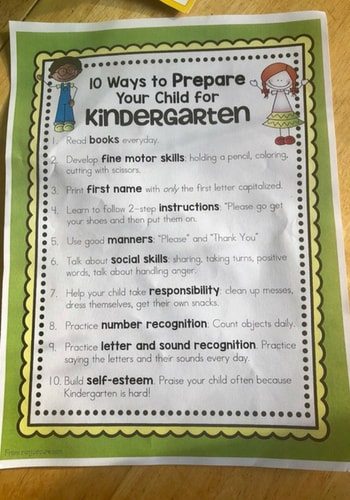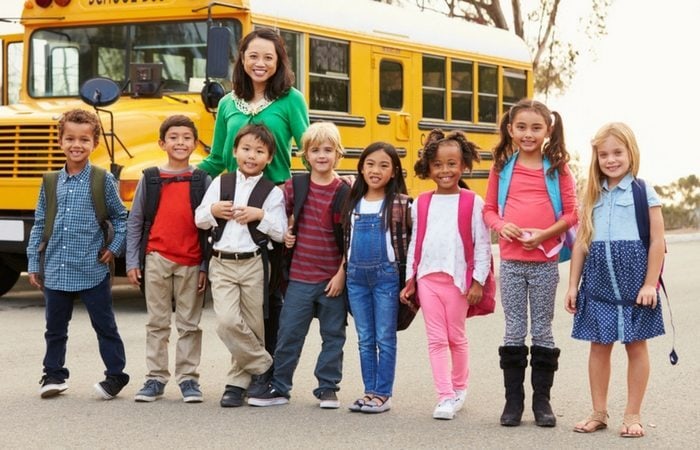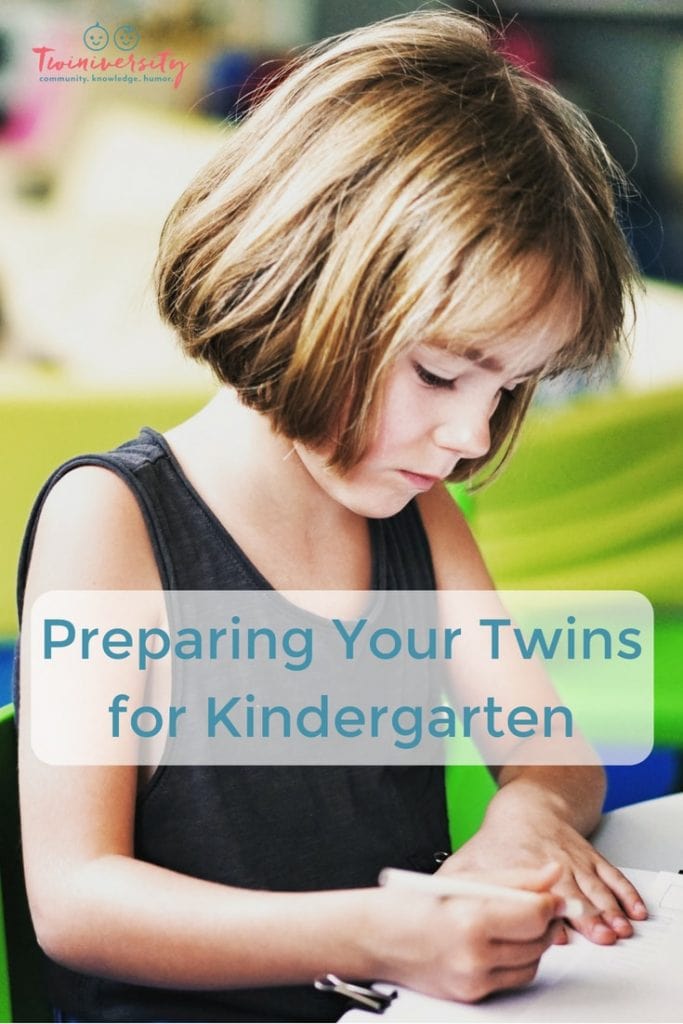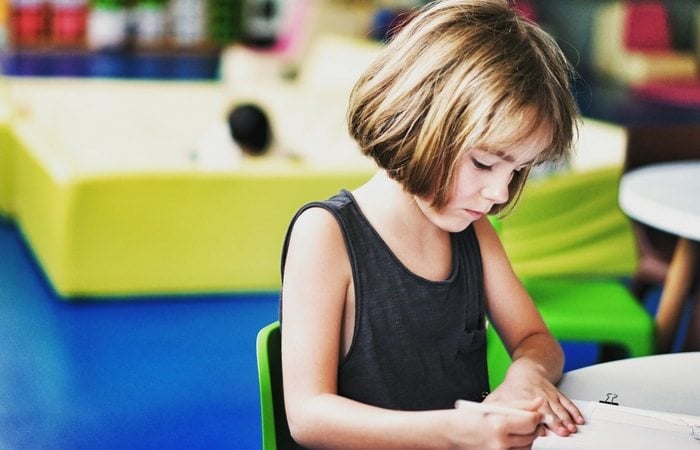Last updated on October 31st, 2023 at 10:29 pm
The summer before my twins, Anne and Barry, started kindergarten, I felt panicky. In the spring, my preschool had a children’s educator come in and talk about preparing for kindergarten. I was totally overwhelmed. Her talk lasted two hours and it was jam-packed with information. She talked about how they would have social studies, math, science, reading, art, computers, etc. Wow! In kindergarten? The only thing I remember coming away with is that they MUST know how to tie their shoes. She said, “No kindergarten teacher has time to teach your child how to tie their shoes.” Oh dear. Please note, not ALL kindergarten teachers require that all children know how to tie their shoes, but they sure do appreciate it if they do!
I was so overwhelmed by the amount of information provided by the children’s educator and the amount of information on the internet that, to be honest, I bought one book from Costco on preparing for kindergarten and didn’t crack open the book once. I was just too bombarded with all the information.

Now, in retrospect, although there is a lot of information you could read and implement, there are really only six traditional academic skills and six social and emotional skills your kindergartner should know. The six academic skills are:
- Knowing how to legibly write their name
- Knowing the alphabet and the sounds of each letter
- Knowing how to count and write to ten
- Knowing basic shapes and colors
- Knowing how to cut with scissors
- Knowing how to hold a pencil correctly
When kindergarten teachers are asked what is the most important thing kids should know before kindergarten, they usually say social and emotional skills are as important as the six traditional academic skills listed above. These include:
- Listening without interrupting
- Focusing on one activity
- Playing independently
- Working well with a group
- Following directions
- Separating from parents easily
Other things you can do to help ease the transition to kindergarten includes:
- Driving or walking the route to school
- Playing on the school playground
- Arranging playdates with other kindergartners in their class
- Going to the orientation open house, which most schools offer
- Talking about a typical school day routine
- Reading books about kindergarten
- Taking a lunch in their backpack to a park
- Memorizing their full name, address, and phone number
- Talking about stranger danger
If your children will be attending full-day kindergarten and are not used to such a long day out of the house, you will want to get them ready throughout the summer. If they still take naps you will want to wean them off of them. You will also want to prepare them (and yourself) for getting up and out the door to get to school or the bus stop on time.

And for those of you who are grappling with whether or not to keep your twins in the same class, my advice is that if they get along well and are dependent on each other, they should be kept together if allowed in your district. You should contact your school district and find out what the policy is as far as keeping twins in the same classroom.
Barry and Anne didn’t like to be out of each other’s sight, so I knew they needed to be in the same kindergarten class. In first grade, however, Anne had made a lot of girlfriends and didn’t want her brother to play with her girlfriends. This was sad for Barry, who hadn’t made many friends and still depended on his sister. I decided to separate them in second grade. This was a good decision because Barry was forced to make his own friends and Anne was happy having her girlfriends to herself. So, in years to come, you’ll just know when it’s time to separate them. You should contact your school district and find out what the policy is as far as keeping twins in the same classroom.
One thing I was concerned about was having two different teachers. I thought that would mean two different sets of homework, two different field trips, etc. In essence, double the work for me. In reality, the two teachers work mirrored each other. They covered the same topics at the same time, went on the same field trips, sent home the same reading programs, etc. Their math and writing schedules didn’t exactly sync, but it wasn’t an issue because I simply reviewed the work that came home from both of them. It wasn’t any more work than if they both had the exact same homework. You may also want to contact your children’s school prior to the school year beginning and request that they are placed into classes in which the teachers do similar projects and go on field trips together.
When I looked at the difference in Anne and Barry in terms of making friends, I found that Anne had good conversational skills, gave compliments, and was good at conflict resolution, while Barry was more reticent and found one friend who became his best friend.

It’s been found that kids need to learn how to make friends. Kids need to learn what to say to enter a group, how to solve conflicts, and how to invite others to play with them. Some things you can do to teach your kids how to make friends include the following:
- Role play facial expressions and gestures that invite friendships and those that repel friendship.
- Teach how to enter a group. Teach your child to ask questions, such as “What are you playing?” and “How do I join the game?” rather than “Can I play?”, which can bring a quick “no” reply.
- Read friendship stories. Read stories that involve friendships and then ask questions, such as “How did the characters become friends?” or “How did the characters resolve conflicts?”
- Invite friends over for playdates.
- Model how to be a good friend. Model sharing and caring and be sure to let your kids know they deserve the same in return.
- Chat with the teacher if there is a problem. Teachers spend a lot of time on the social and emotional aspects of learning, but they are also very busy and might not spot a problem. Feel free to talk to the teacher if needed.
The good thing is that you can start now, but don’t be afraid if your child has not mastered all of these skills by the time kindergarten starts. Children learn an amazing amount in kindergarten. Enjoy your summer with your child and be sure to read, read, read so your child develops a love of reading.







